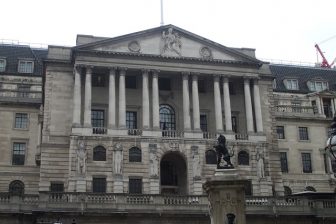 Residential mortgage approvals rose to 68,300 in October, an increase of 2,200 from the previous month, according to the latest money and credit statistics from the Bank of England.
Residential mortgage approvals rose to 68,300 in October, an increase of 2,200 from the previous month, according to the latest money and credit statistics from the Bank of England.
This represents the highest level since August 2022 and the fifth consecutive monthly rise.
Net borrowing of mortgage debt increased by £0.9bn to £3.4bn in October, reversing a £0.3bn decrease in September. Meanwhile, the annual growth rate for net mortgage lending climbed to 1.1%, up from 0.9% in September, continuing an upward trajectory observed since April 2024.
Gross lending reached £20.2bn in October, up from £19.5bn in September, while gross repayments were relatively stable at £17.7bn.
However, Simon Gammon, managing partner, Knight Frank Finance, was quick to downplay any positive signs from the figures. He said: “October was a busier month as buyers and sellers sought to squeeze deals through ahead of the Budget, but sentiment has since taken a turn for the worst.
“Most lenders hiked mortgage rates in the fortnight following the Budget, which will keep a lid on activity for the foreseeable.
“We expect mortgage rates to remain static through the new year at least, and we won’t see any more meaningful falls until the inflation data shows real improvements.”
More reaction:
Nathan Emerson, CEO of Propertymark, said:
“The amount of mortgage debt increasing represents a positive trend among consumers who are ready to take advantage of the decrease in interest rates and inflation.
“This could be the initial sign of a rush to the market for buyers and sellers in England and Northern Ireland in order to beat the stamp duty rises due to commence from April 2025.
“Despite winter months being historically quieter, we are likely going to see people taking advantage of more competitive mortgage deals due to the easing in inflation and a determination to save potentially thousands in tax before the new financial year.”
John Phillips, CEO of Spicerhaart and Just Mortgages, said:
“October’s rise in net mortgage borrowing to £3.4bn and approvals for house purchases reaching their highest level since August 2022 reflect growing confidence in the housing market.
“The recent Bank of England decision to cut interest rates to 4.75% in November will provide a welcome boost to borrowers, potentially encouraging more activity as we move into the new year. However, with inflation ticking up to 2.3% in October, affordability remains a critical concern.
“In light of the recent Budget, it’s vital that policymakers focus on measures to sustain this upward trajectory, ensuring the market remains accessible and stable for both first-time buyers and existing homeowners.
“While these figures are encouraging, continued targeted support is essential to build on this momentum and secure long-term growth in the housing sector.”
Anthony Codling, RBC Capital Markets, managing director, equity research, said:
“Mortgage approvals increased for the fifth month in a row in October to 68,300, to their highest level since August 2022. This is good news for all those involved in the UK housing market.
“Yes, this data relates to the period before Labour’s first budget, but it shows that the foundations of the housing market were firming up as the Budget was announced. The November data may tell a different story but for now it’s a case of onwards and upwards for the UK housebuilders and the UK housing market at large.”


Comments are closed.